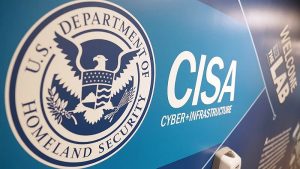School districts throughout Ohio need to meet new cybersecurity requirements for the upcoming school year that cover responses to cyber incidents and ransom demands from attackers.
The Department of Homeland Security (DHS) said on August 1 that it is offering $103.8 million of grant funding to state, local, and tribal governments to “strengthen community cybersecurity.”
More than 400 school district leaders from across the country are calling on Congress and the Trump administration to restore Federal funding and leadership for K-12 cybersecurity and educational technology.
With a March presidential executive order putting some breathing room between the Federal government and states on cybersecurity protections – and state and local governments hoping for a second go-round of funding from Congress under the 2021 State and Local Cybersecurity Grant Program (SLCGP) – we checked in with Gary Barlet, Illumio’s public sector chief technology officer, for his read on the new landscape.
New York Gov. Kathy Hochul on Friday signed into law S.7672A/A.6769A, which aims to enhance the cybersecurity of state and local government networks across the state.
The state of Oklahoma is on the hunt for its next chief information security officer (CISO), according to a job posting issued last week by the Office of Management and Enterprise Services (OMES).
Texas Gov. Greg Abbott signed legislation on June 3 to create the Texas Cyber Command, which the governor’s office billed as the largest state-run cybersecurity department in the United States.
In response to the growing cybersecurity threats facing America’s public schools, the Institute for Security and Technology (IST) has launched the K–12 Cyber Defense Coalition (K12 CDC) – a new national partnership made up of 13 education organizations working to protect schools from cyberattacks and improve response strategies.
The Cybersecurity and Infrastructure Security Agency (CISA), Department of Homeland Security’s (DHS) Science and Technology Directorate (S&T), and the Idaho National Laboratory (INL) recently hosted Louisiana State University (LSU) and industry partners at CISA’s Control Environment Laboratory Resource (CELR) for a cybersecurity training exercise.
As generative AI capabilities reshape cloud technologies, GovRAMP has launched a new AI Security Task Force aimed at strengthening cybersecurity and trust standards for AI-powered cloud solutions used by public sector organizations.











